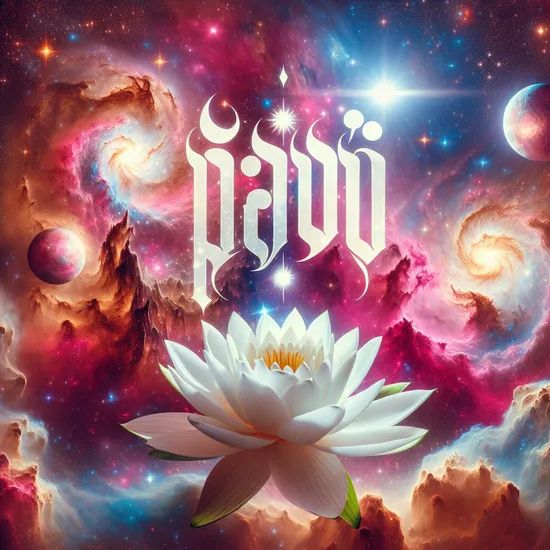Pandu - Name Meaning, Origin, Popularity and More Details
Meaning of Pandu
The name Pandu carries profound meanings, often related to whiteness and pale. It's a term deeply embedded in cultural contexts, especially within India. Historically, it evokes imagery associated with purity or paleness, aligning with its Sanskrit roots. Such connotations make it a distinctive choice that reflects nobility and unique essence.
Find more names related to the name Pandu.
White,
Pale,
Pure,
Indian,
Sanskrit,
Pronunciation of पाण्डु in Sanskrit
ˈpaːɳɖu - पाण्डु
- /p/: soft 'p' sound, like in 'spa'
- /aː/: long 'a' sound, like 'car'
- /ɳ/: retroflex nasal sound
- /ɖ/: retroflex 'd'
- /u/: as in 'put'
Pandu can be pronounced as 'PAAN-doo', where 'PAAN' rhymes with 'barn' and 'doo' as in 'do'
Origin of Pandu
The name Pandu finds its roots deeply immersed in the ancient cultures of India. As per Sanskrit tradition, ‘Pandu’ is a classical name often associated with the epic narrative of the Mahabharata. This storied origin offers a rich tapestry woven with historical and mythological threads, underscoring its Indian cultural significance.
Gender Usage of Pandu
The name Pandu is generally considered male, frequently used across India. Despite its masculine slant, it showcases a broader spectrum in some regions. Notable historical and mythological figures named Pandu further bolster its regard as predominantly male, although modern trends see an evolving neutrality in certain cultures.
Popularity of Pandu
The name Pandu, while echoing historical richness, exhibits modest popularity today. In regions like India, where its roots are strongest, it holds cultural prestige rather than mass commonality. Though its particularity retains appeal, global digital footprints reflect flares of interest, especially due to cultural representations and familial traditions.
Global Usage of Pandu
In India, the name Pandu is widely recognized due to its mythological significance. However, in places like Nepal, Sri Lanka, and the larger South Asian diaspora, its pronunciation and usage may vary slightly. Its portrayal often ties to revered historical figures in those regions, maintaining veneration over mass adoption.
| Global Distribution and Gender Ratio of the Name Pandu |
| Country |
Usage % |
Female % |
Male % |
| ID |
95.41% |
2.73% |
97.27% |
| US |
1.49% |
0% |
100% |
| IN |
0.87% |
0% |
100% |
| MY |
0.37% |
33.33% |
66.67% |
| QA |
0.25% |
0% |
100% |
Analyses on gender and popularity by nation are supported by insights from
Gender API.
Characteristic Features of Pandu
- Wisdom: Individuals named Pandu often show remarkable intelligence and insight.
- Cultural Depth: They tend to have a strong connection to cultural heritage.
- Leadership: Show a natural propensity for leadership and guidance.
- Integrity: Known for their strong moral principles and honesty.
- Humility: Often perceived as humble and down-to-earth.
Professional Orientation for Pandu
- Scholars & Academics: Many Pandus thrive in academics due to their penchant for knowledge.
- Cultural Historians: Their connection to heritage often leads to careers in history and preservation.
- Leadership Roles: With natural leadership skills, they often undertake managerial and directorial positions.
- Philosophers & Thinkers: A tendency to ponder and philosophize is frequent.
- Social Leaders: Many find paths in social work, helping communities.
Unique and Interesting Characteristics of Pandu
- Mythological Reference: The name relates to a significant figure in the Mahabharata.
- Rich Literary Usage: Often found in historic literary texts and poems.
- Symbol of Purity: Frequently used to symbolize purity in art.
- Heritage-Centric Celebrations: Key in certain cultural festivities.
- Elements in Literature: Appears in modern narratives exploring traditional themes.
Famous People Named Pandu
- Pandu: Father of the Pandavas in the epic Mahabharata
Similar Names
-
Pankaj: The name is rooted in Sanskrit meaning lotus.
-
Prabhu: A name carrying the meaning of lord or master.
-
Punit: Meaning holy or sacred in Sanskrit.
-
Parth: Linked to the meaning warrior, often connected to Arjuna.
-
Pratap: It signifies glory or splendor.
-
Pradeep: Means light or lamp.
-
Pravin: The name embodies skill and expertise.
-
Prakash: This name signifies light or radiance.
-
Pavan: Derived from a term meaning wind or air.
-
Pankhuri: A reference to flower petal.
